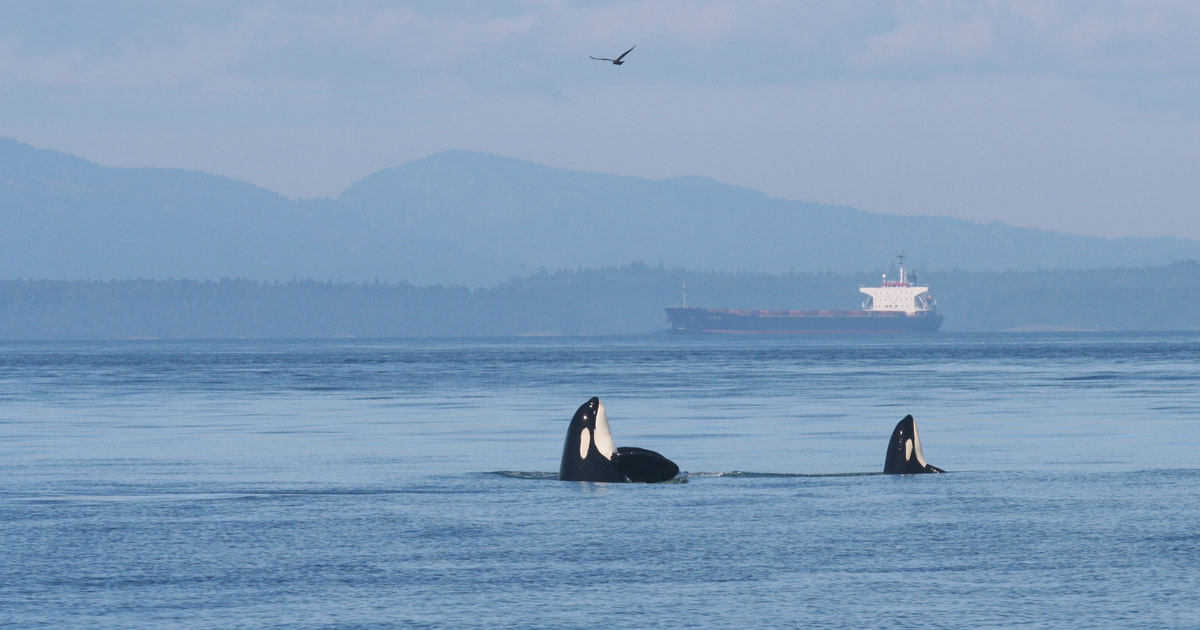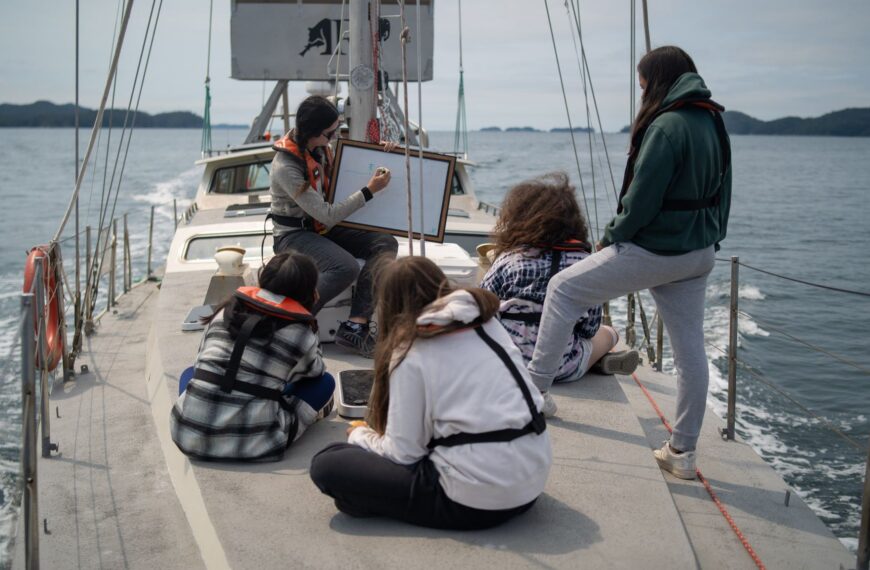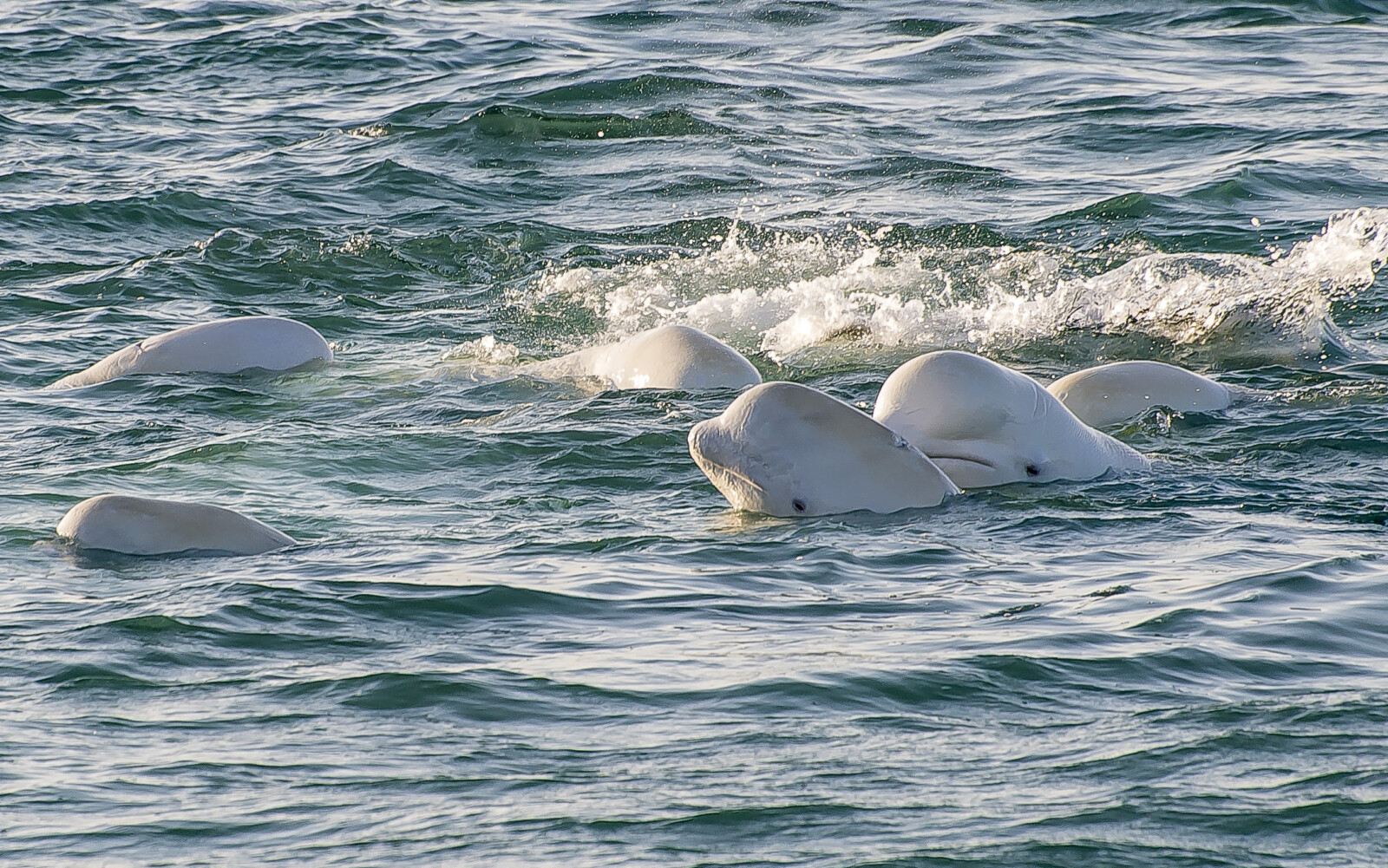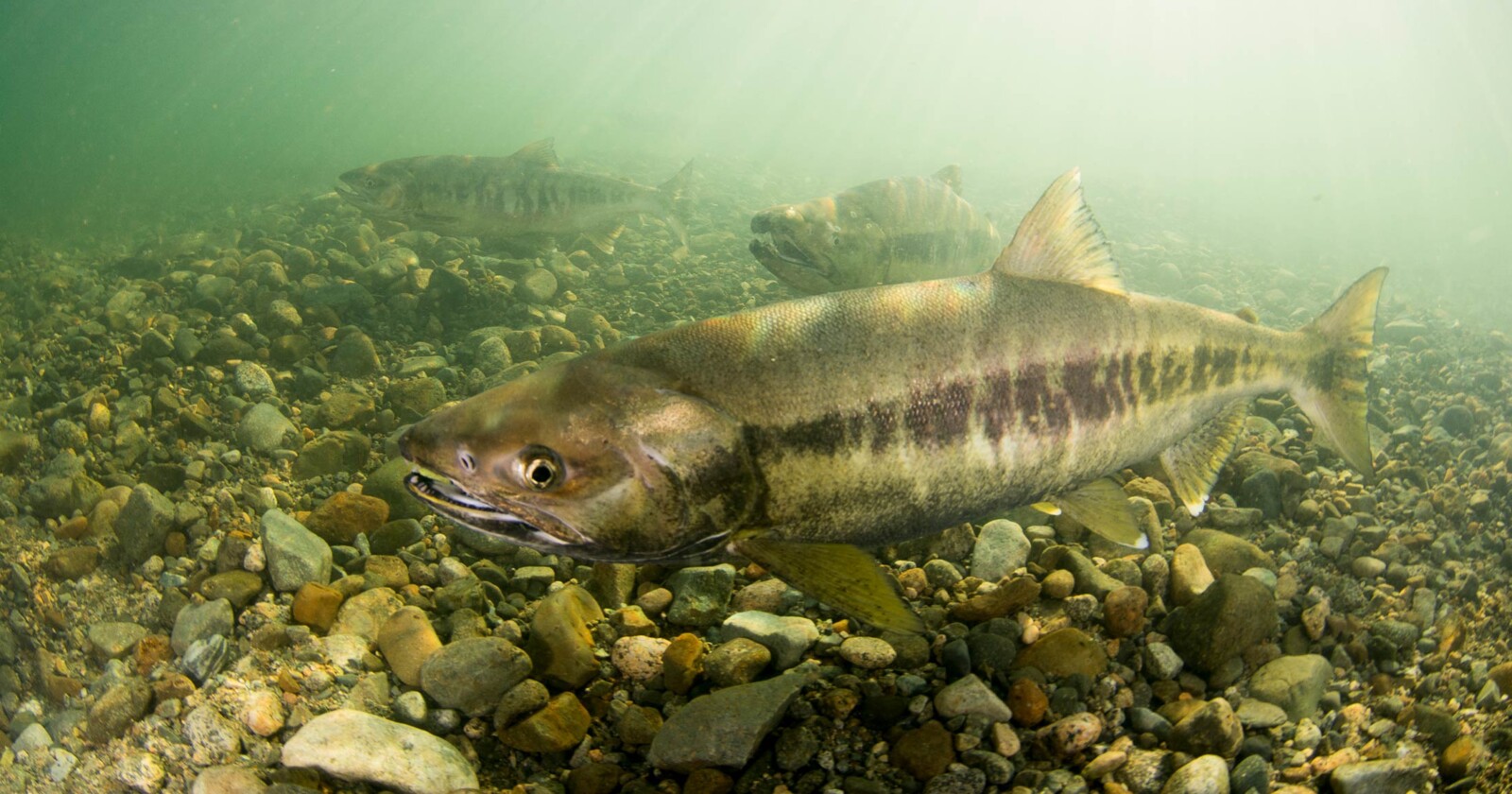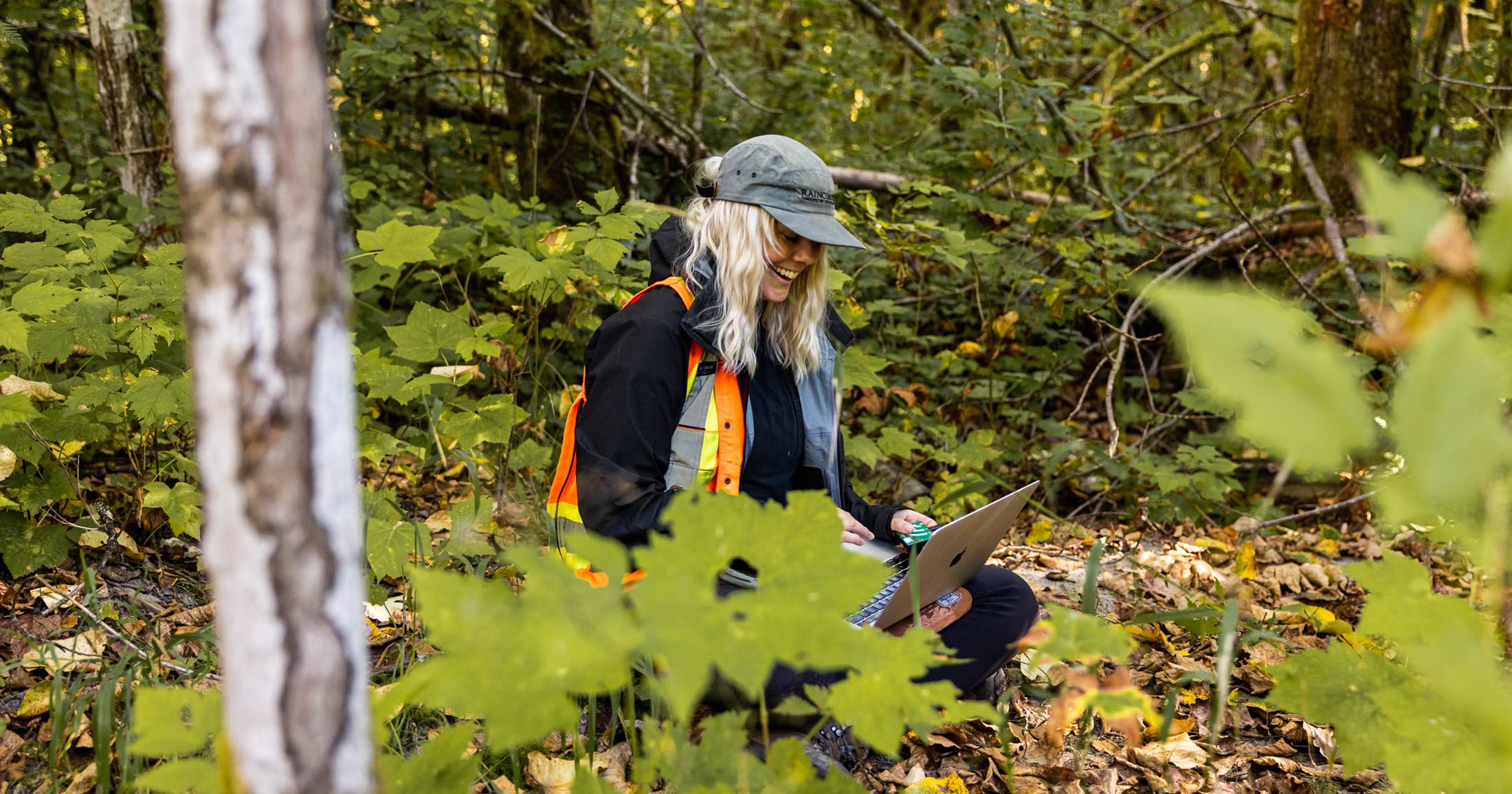Still no adequate threat reduction measures for endangered killer whales
The federal government pushes Trans Mountain while Southern Residents lose another whale
Yesterday, the federal government announced that it is instructing the National Energy Board to conduct a review of project-related marine shipping associated with the proposed sevenfold increase in tanker traffic from the Trans Mountain expansion. This expansion carries the risk of oil spills and ship strikes on Southern Resident killer whales. It also carries the certainty of increased noise. Noise from ships has been identified as one of three main stressors – along with a lack of prey (primarily Chinook salmon), and contaminant exposure – preventing the recovery of the endangered Southern Resident killer whale (SRKW) population.
Since the NEB review began in 2014, more than 8 whales have died and most pregnancies have failed, leaving just 74 individuals. Tweet This!
Scientists and managers consider the existing noise levels (i.e. without increased tankers) to be a threat to the acoustic integrity of SRKW critical habitat. Based on a large and growing body of evidence, conservation scientists agree that the current levels of Chinook abundance and ocean noise create conditions that are untenable for SRKW recovery. Consistent with this understanding, the federal government has determined that SRKWs are at ‘imminent risk of extinction’ under current conditions.
Initiatives such as the federal Oceans Protection Plan and its associated spill response plan do not reduce the threats facing SRKWs. Raincoast’s analysis shows that a 50% reduction in existing noise levels, combined with other efforts to increase Chinook abundance, are necessary to move this population toward recovery.
Feds push Trans Mountain while Southern Residents lose another whale. Tweet This!
Since the NEB review began in 2014, more than 8 whales have died (most recently young female J50) and most pregnancies have failed, leaving just 74 individuals in September 2018. Less than one-third of these are actively breeding females. Action must be taken immediately to preserve the recovery potential of this population. A 22-week NEB review appears to be a ‘box-ticking’ exercise that, once again, does not reduce threats to the whales. While a valid environmental review conducted without a predetermined outcome is necessary for many other aspects of Salish Sea marine life, it will not improve the conditions for SRKWs.
We reiterate our concerns for Southern Resident killer whales and urge the federal government to implement threat reduction measures that are in line with the critical nature of this crisis. Represented by Ecojustice, Raincoast filed a lawsuit to this effect on September 5, 2018.
You can help
Raincoast’s in-house scientists, collaborating graduate students, postdoctoral fellows, and professors make us unique among conservation groups. We work with First Nations, academic institutions, government, and other NGOs to build support and inform decisions that protect aquatic and terrestrial ecosystems, and the wildlife that depend on them. We conduct ethically applied, process-oriented, and hypothesis-driven research that has immediate and relevant utility for conservation deliberations and the collective body of scientific knowledge.
We investigate to understand coastal species and processes. We inform by bringing science to decision-makers and communities. We inspire action to protect wildlife and wildlife habitats.


